Anthony Albanese defends APEC summit attendance, attacks Peter Dutton’s cancellation call
Anthony Albanese says his attendance at APEC in San Francisco has been critical to Australia’s interests, and called out Opposition Leader Peter Dutton for demanding he cancel the trip.
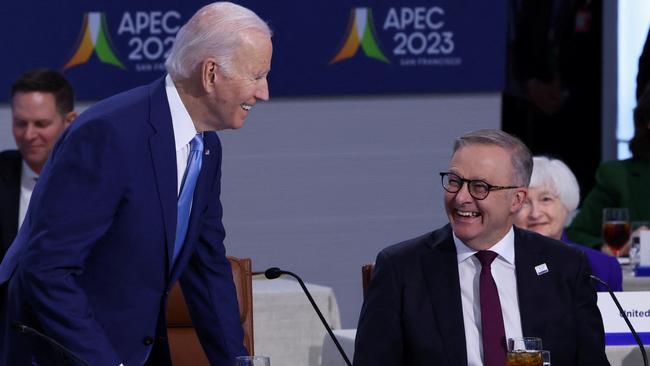
Anthony Albanese has launched his strongest defence of his international travel schedule following the Asia-Pacific Economic Cooperation leaders’ meeting in San Francisco, saying his attendance was in the national interest and that Peter Dutton had diminished himself by calling for the cancellation of the trip.
The Prime Minister said he had travelled less in his first 12 months as Prime Minister than Scott Morrison and that it was “just a fact” that Australia was a member of the G20, APEC, the East Asia Summit and also attended ASEAN meetings.
Concluding the APEC leaders’ week, Mr Albanese revealed he had spoken at the end of the summit with Chinese Leader Xi Jinping and Chinese Foreign Minister Wang Yi about the normalisation of relations between Canberra and Beijing and the importance of removing trade impediments.
“After the summit finished … I had a much longer conversation with the President and with Wang Yi as well,” Mr Albanese said. “We reiterated the stabilisation that is occurring. And of course, our trade. The removal of any of the remaining trade impediments is very much in Australia’s interests.”
“We spoke about Premier Li (Qiang) coming to Australia next year now that the leaders’ meetings have been resumed,” he added.
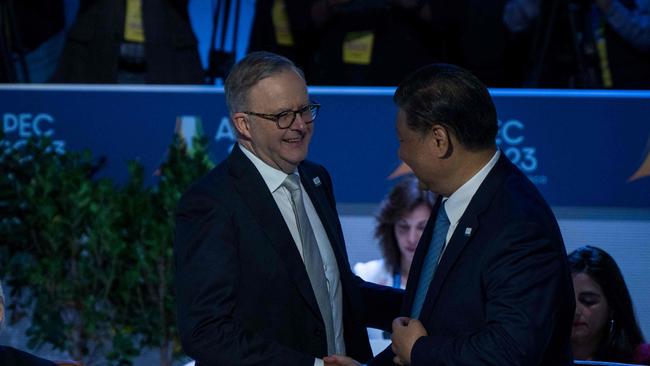
Mr Albanese said that one in four of Australia’s jobs depended on trade and that it was critical he attended the summit, declaring: “That’s the task here, to represent Australia’s national interests.”
He attacked the Opposition Leader for calling on him to cancel his APEC trip, arguing this would have been an abrogation of his responsibility as Australian Prime Minister. He also accused the Coalition of lacking consistency, saying that “in the lead-up to the NATO summit the Opposition were calling upon me to attend meetings and there were editorials calling upon me to attend meetings.
“It is just a fact that part of the job of being Australian Prime Minister is to represent Australia. And represent Australia in forums that matter, because in today’s globalised economy what happens here has a direct impact on Australian jobs and the Australian economy,” Mr Albanese said.
He also made clear that he was looking forward to returning home, and urged the Opposition Leader to “go back and have a look at what John Howard said about APEC and how important it is.”
“This is the 30th anniversary of APEC and the Australian prime minister has been at every single APEC meeting for those 30 years,” Mr Albanese said. “This is about our national economy … to be with the leaders of 21 economies that represent 75 per cent of our trade.”
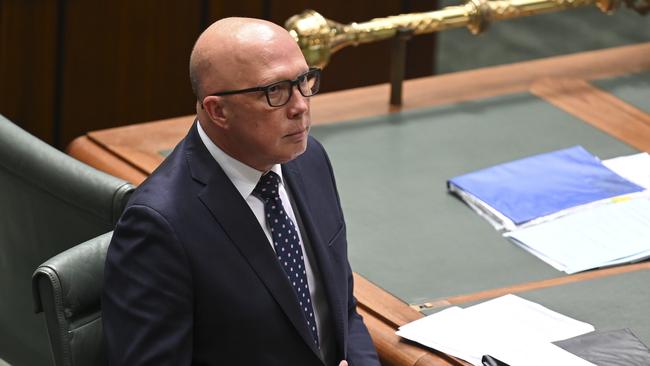
Mr Dutton demanded the Prime Minister cancel his travel plans earlier in the week, arguing the Prime Minister had a responsibility to respond to the release of non-citizens with criminal backgrounds from indefinite detention following a High Court decision.
But Mr Albanese argued this would have been a mistake. “I’d just say to Peter Dutton, if you want to be the alternative Prime Minister of Australia you need something more than just opportunism,” he said. “You need to be prepared to stand up for Australia’s national interest.”
However, with 18 international trips in 18 months under his belt, Mr Albanese said he had decided not to attend the upcoming UN climate change conference in Dubai in early December – despite Australia’s bid to host the event in 2026 and highlight its more ambitious climate policies.
“Chris Bowen will be attending the COP meeting in December,” Mr Albanese said.
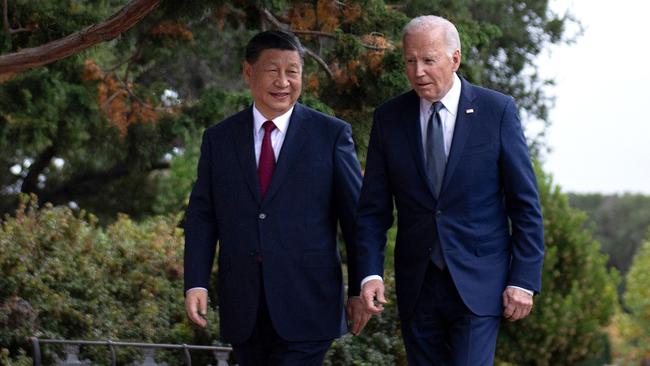
The Prime Minister also said the talks between US President Joe Biden and Mr Xi were positive, and revealed the world’s two most influential leaders had held further discussions after the conclusion of the APEC summit.
“It was a warm discussion that I witnessed,” he said. “And it was very positive. The agreement on military to military communications is positive. The agreement to have discussions about artificial intelligence and some of the challenges that face the world between the United States and China is very positive indeed.”
Mr Albanese used the final day of the summit to make the case for reform of the World Trade Organisation to achieve a “fully and well functioning WTO dispute settlement system that is accessible to all members by 2024.”
“This will allow economies to settle their trade differences through agreed rules and norms,” he told member economies.
“We also want a WTO equipped to make new rules and tackle modern global trade challenges – from food insecurity and climate change, to inclusivity.”
Earlier in the day, Mr Albanese held a bilateral meeting with Vietnamese President Vo Van Thuong and Japanese Prime Minister Fumio Kishida. He told Mr Kishida that Australia continued to be a “reliable supplier of energy for Japan” and that both nations would continue to work together on energy security, national security and climate change.
More Coverage
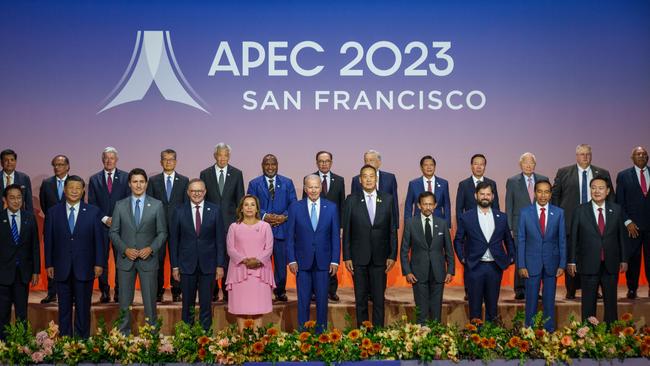


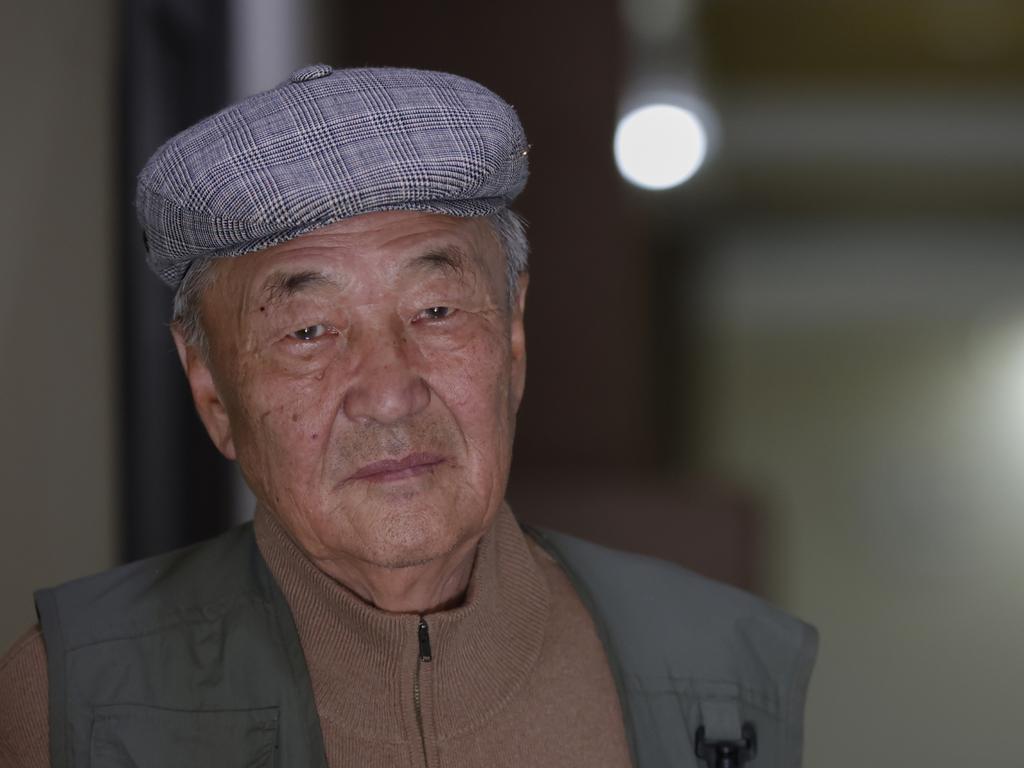

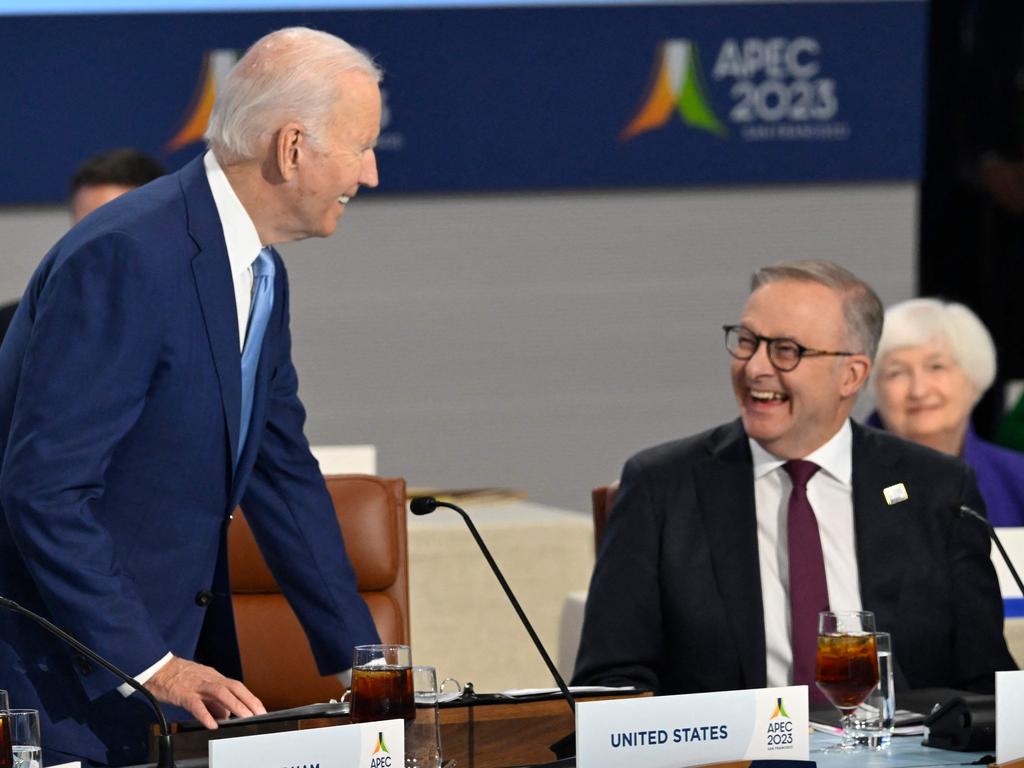
To join the conversation, please log in. Don't have an account? Register
Join the conversation, you are commenting as Logout